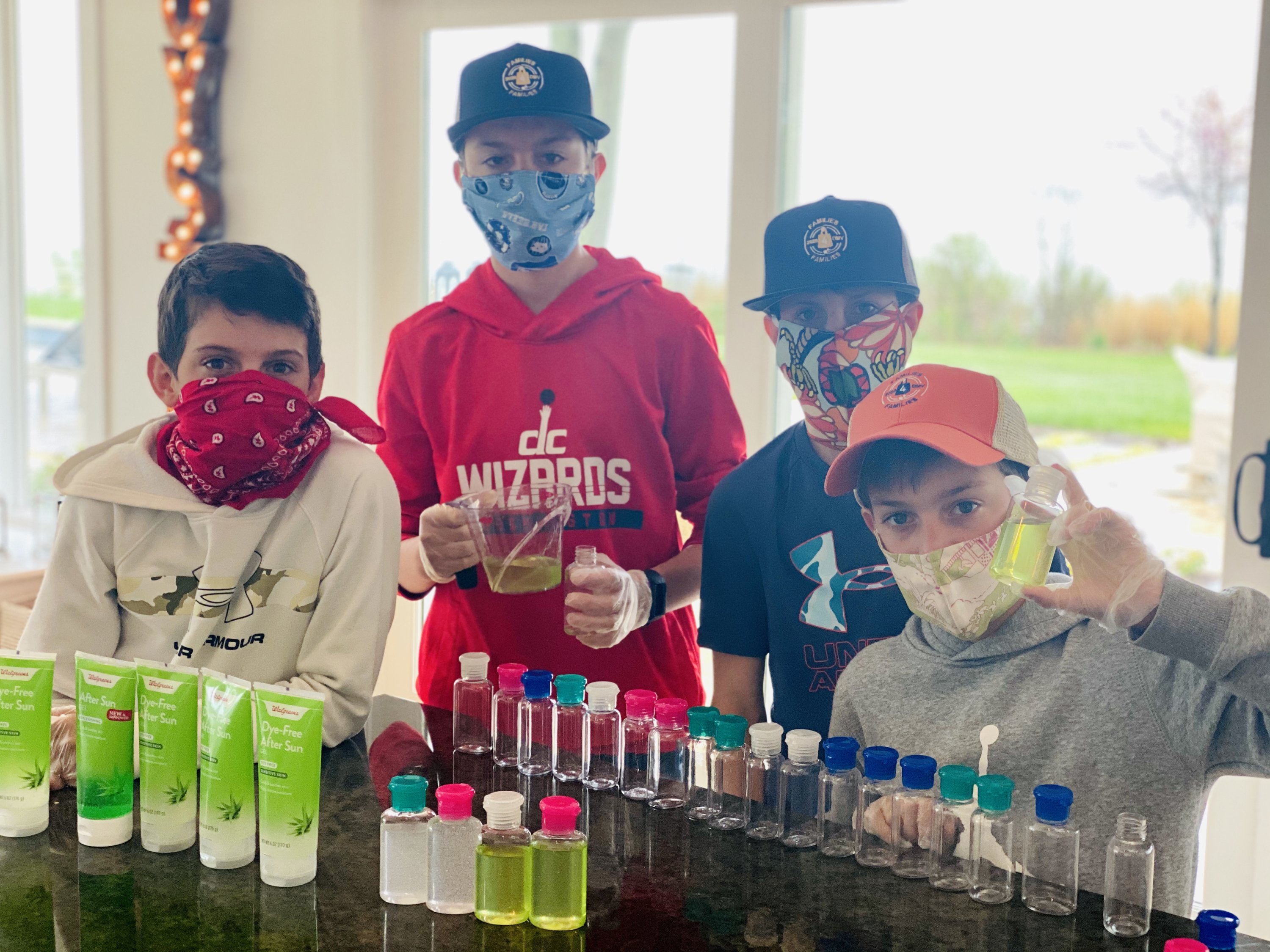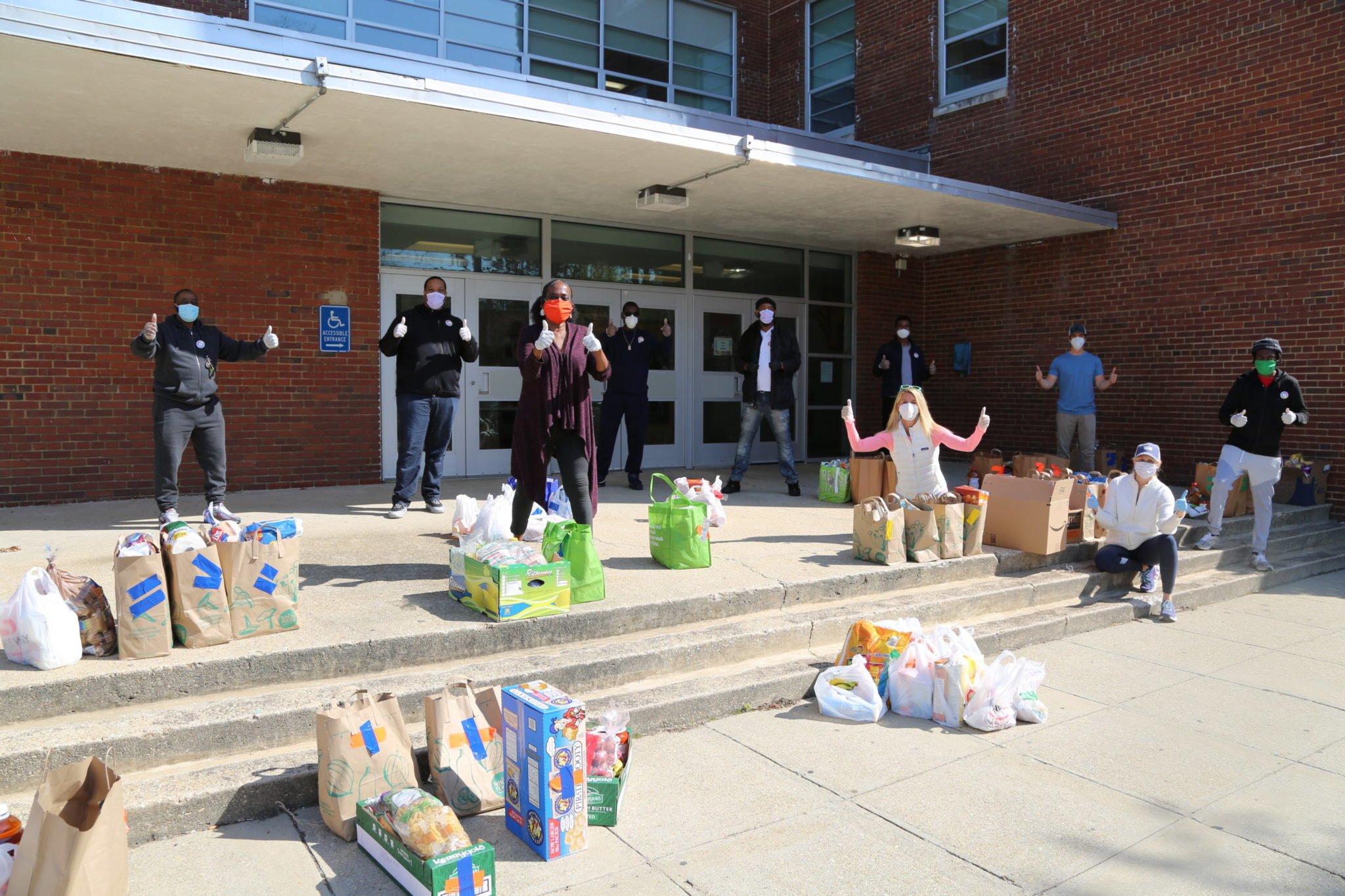About Coronavirus 2020
Washingtonian is keeping you up to date on the coronavirus around DC.
Like a lot of people, Amanda Marshall and her family felt an urge to help those most affected by the Covid-19 crisis. But they weren’t quite sure what they could do.
“We sat around the table and said, ‘what skillset do we have?’” says Marshall, of a conversation she had with her husband and their four sons. “We said okay, there’s no medical expertise here, and nobody in our family sews, so we couldn’t make masks.”
Then, it occurred to them: with the pandemic taking a huge economic toll, and social-distancing protocols making it tough for many people to get to the store, the Marshalls decided they could buy groceries and bring them to households in need.
About a month on, that idea has grown into a new effort, called Families4Families, which has so far rallied some 500 donors to provide groceries equating to about 15,000 meals. Every week, dozens of people bring bags full of essentials to five drop-off points around Northwest DC and Chevy Chase, Maryland. From there, volunteer drivers deliver the groceries directly to families who are struggling. Many of the recipients are unemployed because of the pandemic. Most live in parts of the city that don’t have easy access to fresh groceries, and would otherwise have to risk taking public transportation to get to a store.
As the founder of Fair Chance, an organization that helps nonprofits improve their operations, Marshall already had connections within dozens of local groups, who have helped her identify where to deliver the groceries. At first, Marshall says she thought this was just something her own family would do to pitch in. But when the Marshalls set out to grocery shop for the masses, she says they quickly realized they wouldn’t be able to make much of a dent, since stores are rationing how much they sell to each shopper.
“They’d stop us at four rolls of toilet paper, or four packages of meat,” she says. “So, we reached out to all our friends and neighbors and colleagues, and said, ‘we’re gonna get a week of groceries for a family every week. Who’s in?’” She says the response was overwhelming: “Not a single person said no.”
Since then, the Marshalls have worked out all the logistics. Donors can sign up online to assemble a “bag of basics”— how Families4Families refers to the shopping list of groceries it asks donors to provide. Drop-offs happen every Tuesday; the Marshalls’ oldest son James sends all the necessary information to donors in advance, so they know where to bring their bags.

The Marshalls worked with Mary Brown, co-founder of the nonprofit Life Pieces to Masterpieces, to determine what should go into the bags of basics. The grocery list they assembled is designed to feed a family of four to six for a full week, and cost less than $125. Once the bags arrive, volunteers add gloves, face masks, homemade hand sanitizer, and sanitizing wipes to each of them, before they’re delivered to the families. (A local drapery maker, Gretchen Everett, and her staff have been sewing and donating the masks.)
As word about the effort has spread on social media, Marshall says friends and contacts throughout the country have asked how to replicate the model in their own communities. So far, Families4Families chapters have launched in six other cities.
“Families that I don’t even know have come to us and said, ‘give us the path to do this.’ We definitely didn’t anticipate that,” says Marshall. “It has taken off.”





















